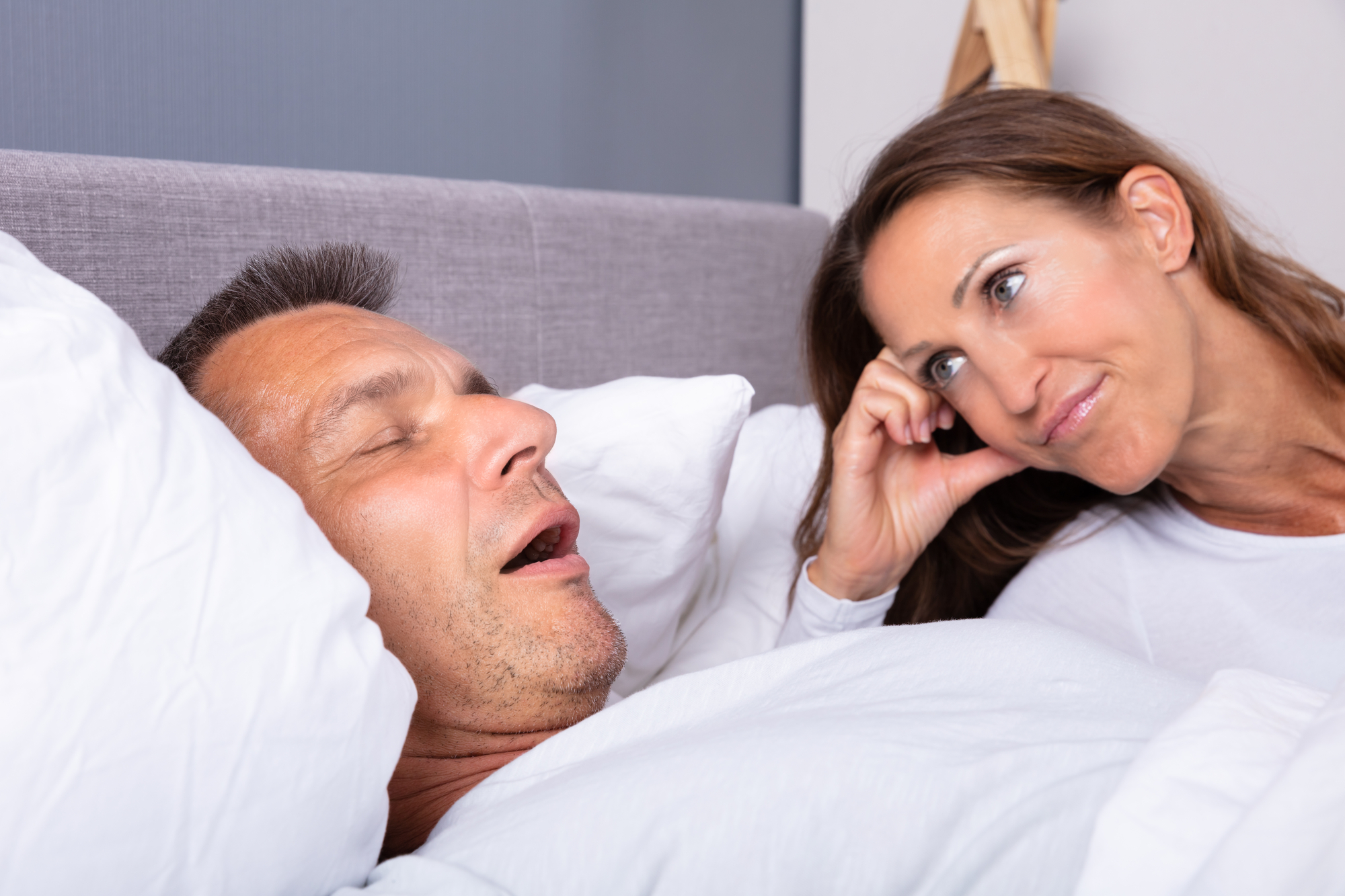Obstructive Sleep Apnea and Snoring

By Stephen Chandler, MD |20 June 2021|
Why Do We Snore?
We all know that we need sleep to function properly. If you are not getting the proper amount of high-quality sleep, your body will feel drained and you will be unable to function properly during the day. One cause for poor sleep is snoring. This is often a consequence of nasal congestion made worse by a supine sleeping position. The presence of nasal secretions and debris make this condition even worse, resulting in “mouth breathing” and often snoring. Snoring is at least partially caused by the soft palate and uvula intermittently obstructing the back of the nose. Intermittent tongue base collapse is also involved and is largely responsible for obstructive apnea. The sound of snoring is produced as the throat rhythmically vibrates, emitting sound waves that are amplified by the nasal passages and open oral cavity. Observe any lifestyle changes needed to reduce your risk of snoring such as weight loss, decreasing alcohol intake, or sleeping propped on your side.
Snoring VS Sleep Apnea
Sleep apnea is a serious problem which can happen if there is an obstruction somewhere in your your airway that prevents adequate breathing during sleep. This will lead to many people having to wake up multiple times at night because they have not been able to get enough oxygen in their lungs. The sufferer may experience periods of loud snoring and gasping for breath, which can disturb their sleep as well as that of their bed partner. Left untreated, sleep apnea can lead to other life threatening ailments such as high blood pressure, abnormal heart rhythms, or sudden cardiac death. Recognizing the symptoms of sleep apnea should most importantly be understood by your bed partner who may witness loud snoring, paused breathing during sleep, and sudden gasps for air. Your symptoms may also include daytime drowsiness, chest pain, waking up short of breath, and frequent urination.
Treatment Options for Sleep Apnea
For those who suffer from this condition, there are a few treatments available. One is focusing on improving nasal obstruction that will help open up their airways so they can breathe better at night. Another is surgery where the person’s uvula, tonsils or tongue base is modified to enlarge the airway and help to eliminate obstruction.
Some people find relief with throat sprays or pills for snoring and sleep apnea, but these treatments are only temporary fixes. Improving nasal patency using allergy and decongestant sprays are also options, in addition to removing retained nasal debris and secretion using a sinus rinse. Ultimately, surgery for sleep apnea should be considered if other methods have not provided enough relief for the sufferer.
The CPAP machine is a medical device worn at night by people with chronic sleep apnea in order to keep the airway open throughout sleep. It uses positive air pressure to blow air into the throat, which prevents obstruction and opens up the patient’s airways allowing them to breathe regularly throughout the night.
A CPAP machine is typically fitted by a doctor or specialist after a physical examination, but it can also be prescribed over-the-counter.
Nasal rinsing is an effective snoring management technique because it helps decongest your nose. You can do this by either using a saline nasal spray, Neti Pot or the Complete Rinse easy to use nasal rinsing system. Try to choose a nasal rinse system that is effective, but that doesn’t cause choking or gagging. The Complete Rinse System was designed to prevent the choking and gagging common to many popular rinse systems. Also, be sure to choose a nasal rinse system that allows the rinse to go where it is intended. Nasal rinse systems should not cause ear fullness, choking, or gagging.
It’s recommended that you rinse your nasal passages at least once a day to get relief from congestion and help minimize nasal obstruction related snoring.
Rinsing your nose with saline can help relieve congestion and also provide relief from the dryness that often accompanies seasonal changes.
You should use a nasal rinse when you need to remove excess mucus from your sinuses or as part of an allergy treatment program.
When To See A Doctor for Sleep Apnea?
Obstructive sleep apnea is a serious problem however has several treatment options with good outcomes. Many patients report once under treatment for sleep apnea their energy levels are restored and they report an increase in quality of life. If you think you might suffer from sleep apnea initiate an evaluation by an ENT physician. Once an accurate diagnosis is in place your ENT physician may collaborate your care with a Pulmonolgist. With the right diagnosis and treatment you could be well on your way to healthier living.
Dr. Stephen Chandler is a practicing Otolaryngologist in Montgomery, Alabama and owner of Sandler Scientific, LLC, makers of CompleteRinse®. To schedule a visit with Dr. Chandler call 334-834-7221 Learn more at https://www.jacksonclinicent.org/. Complete Rinse is available on Amazon and at www.completerinse.com.